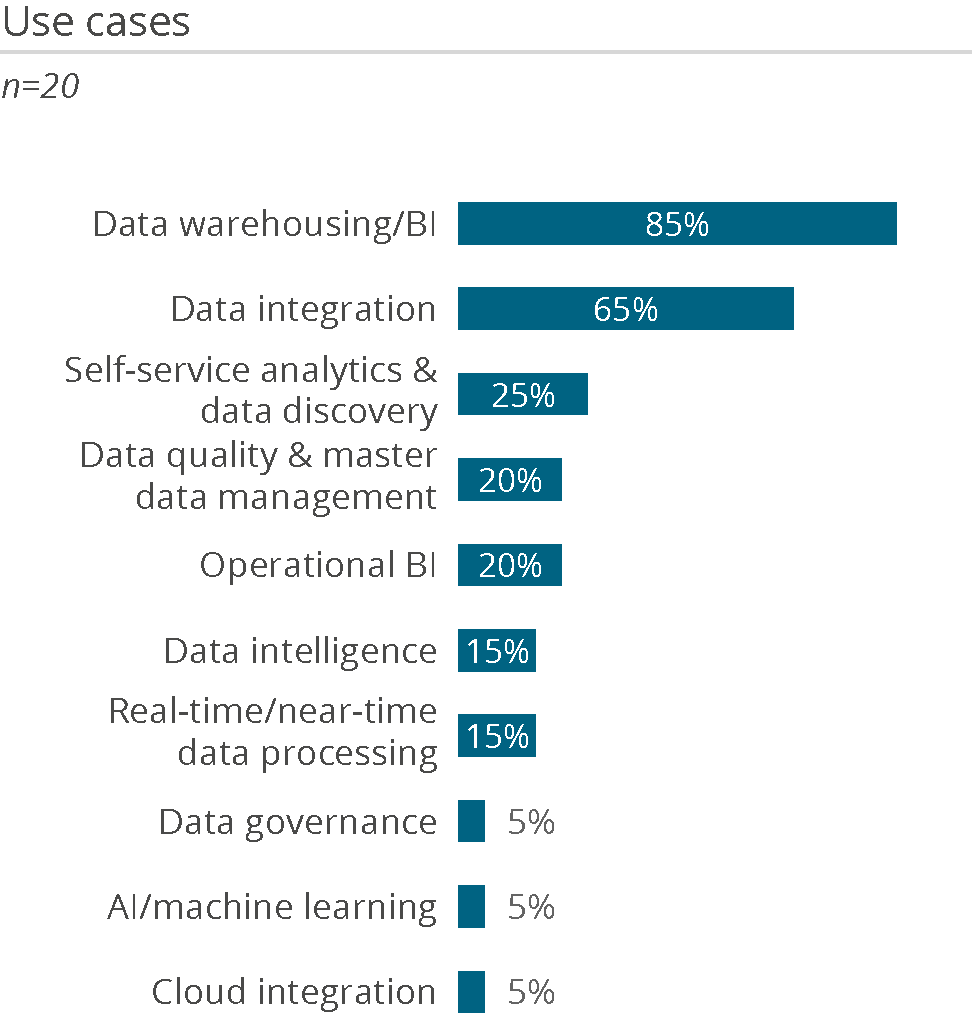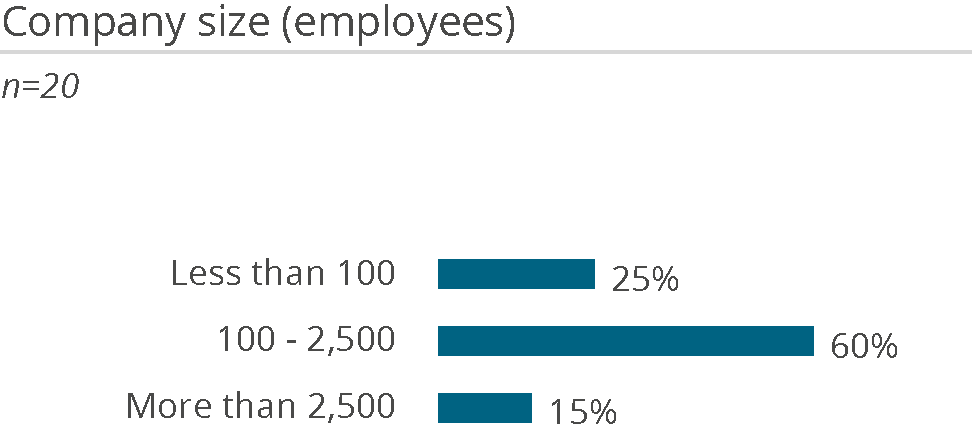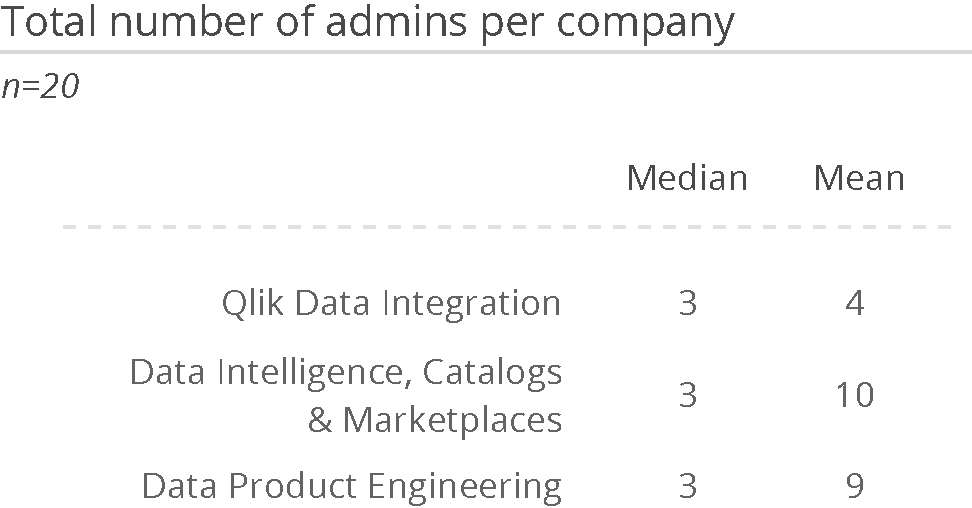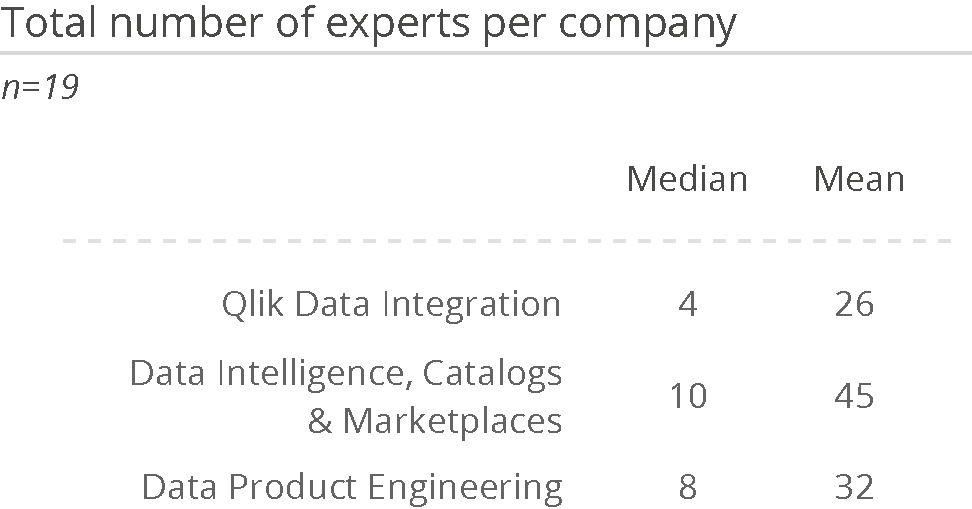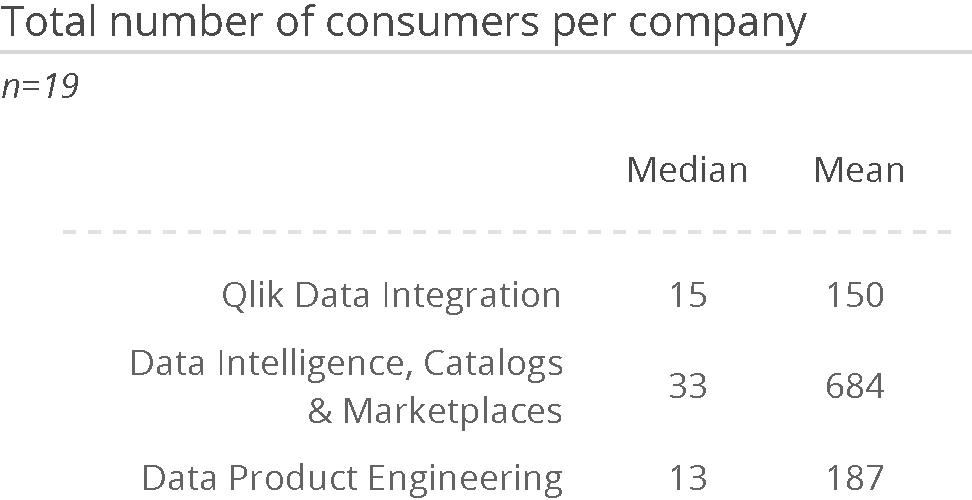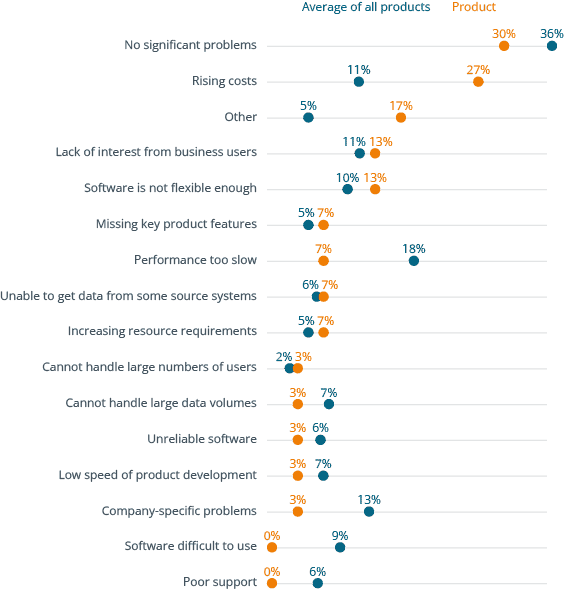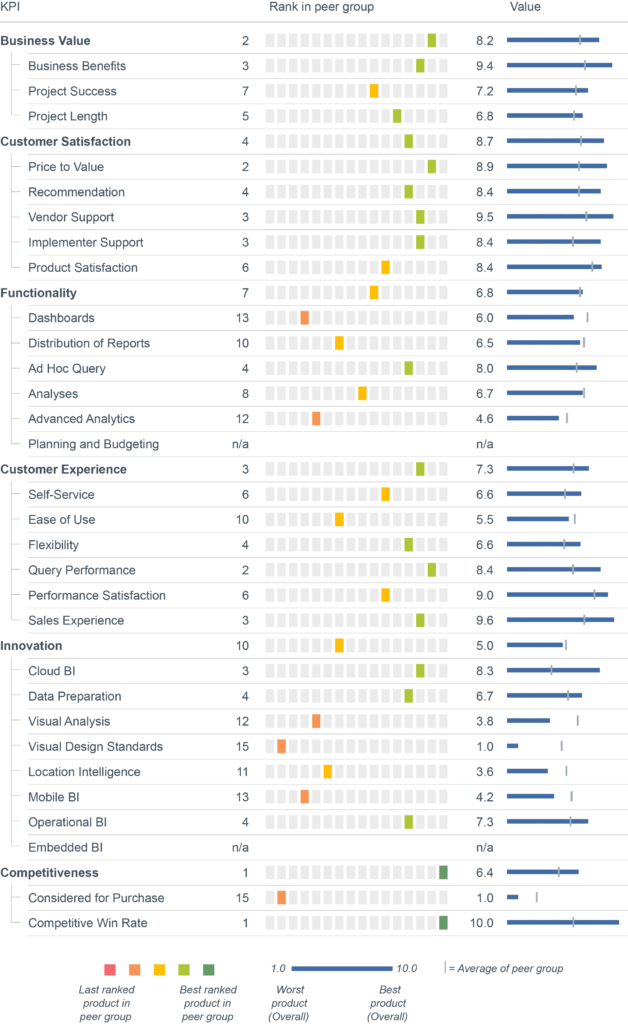Role
Data owner
Number of employees
More than 2.500
Industry
Healthcare
Source
BARC Panel, The Data Management Survey 25, 02/2024
What do you like best?
Performance und User-Freundlichkeit.
What do you like least/what could be improved?
Administation der QLIK Server Lösung.
What key advice would you give to other companies looking to introduce/use the product?
QLIK Cloud als Alternative zu prüfen.
How would you sum up your experience?
Begeistert unsere Anwender.

